
It was another challenging year for car manufacturers as lockdowns and a major microchip shortage once again played havoc with the market.
But as the Australian new-car market returned to one-million-plus sales in 2021, which were standout brands for the right and wrong reasons?

Winner: Ford Australia
Ford came within less than 1500 units of taking the bronze medal in the battle of the brands, just missing out on third place to Hyundai.
A total of 71,380 sales represents a healthy 20 per cent increase on 2020. The company probably doesn’t care that the Ranger ute accounted for a staggering 70 per cent of its sales – or 82 per cent if you add the Ranger’s SUV twin, the Everest. Its other SUVs, the Puma and Escape, should be doing more, though.
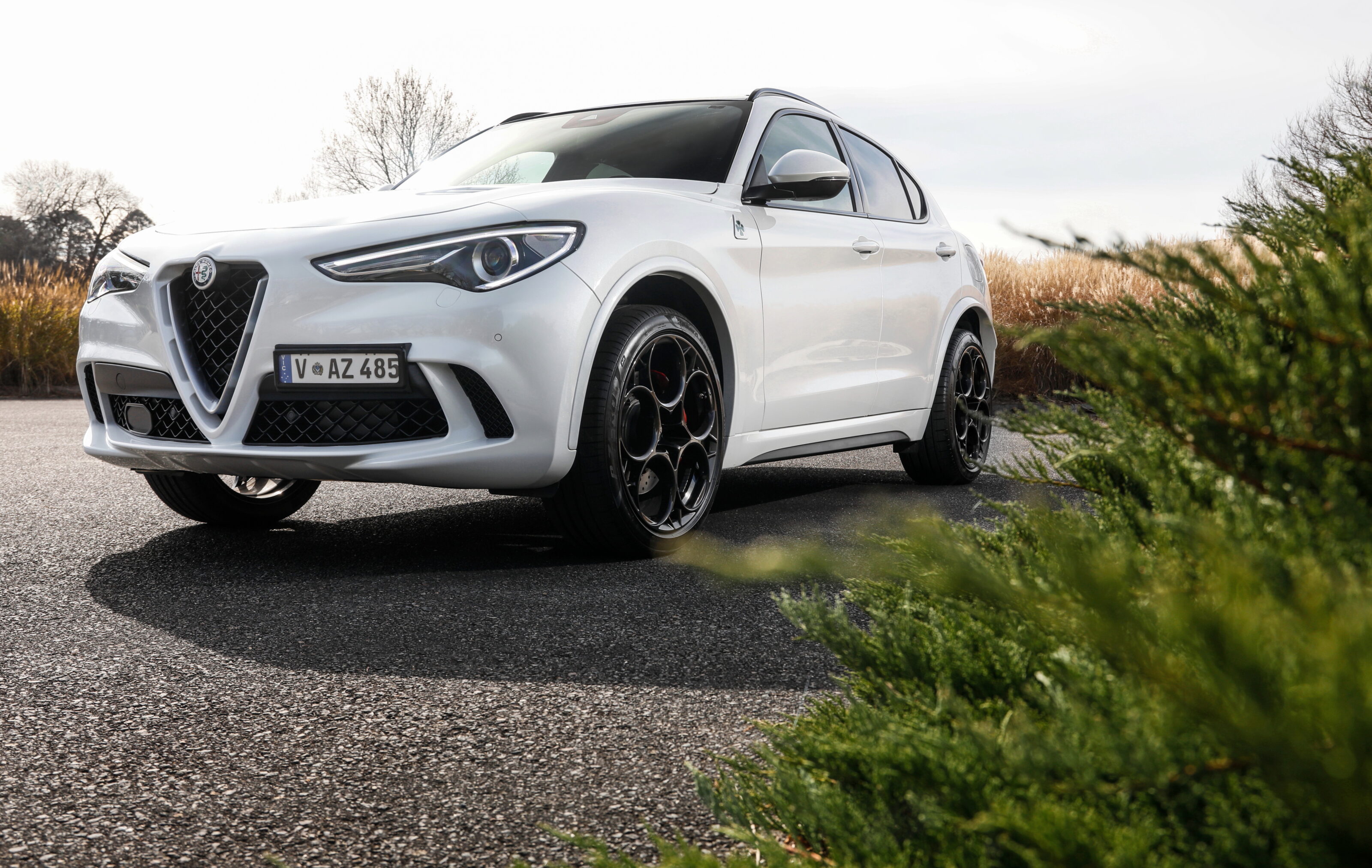
Loser: Alfa Romeo
The wait for the Italian brand’s revival goes on.
Alfa sales dropped for the third consecutive year locally, with just 618 cars shifted in 2021.
Neither the end of production for the 4C sports car or the discontinuation of the Giulietta hatchback were crucial here – it came down to a poor performance from the Stelvio SUV, a critical model that fell from 414 sales in 2020 to 192 last year.
The facelifted Giulia was a positive, at least, climbing 67 per cent to 323 units.
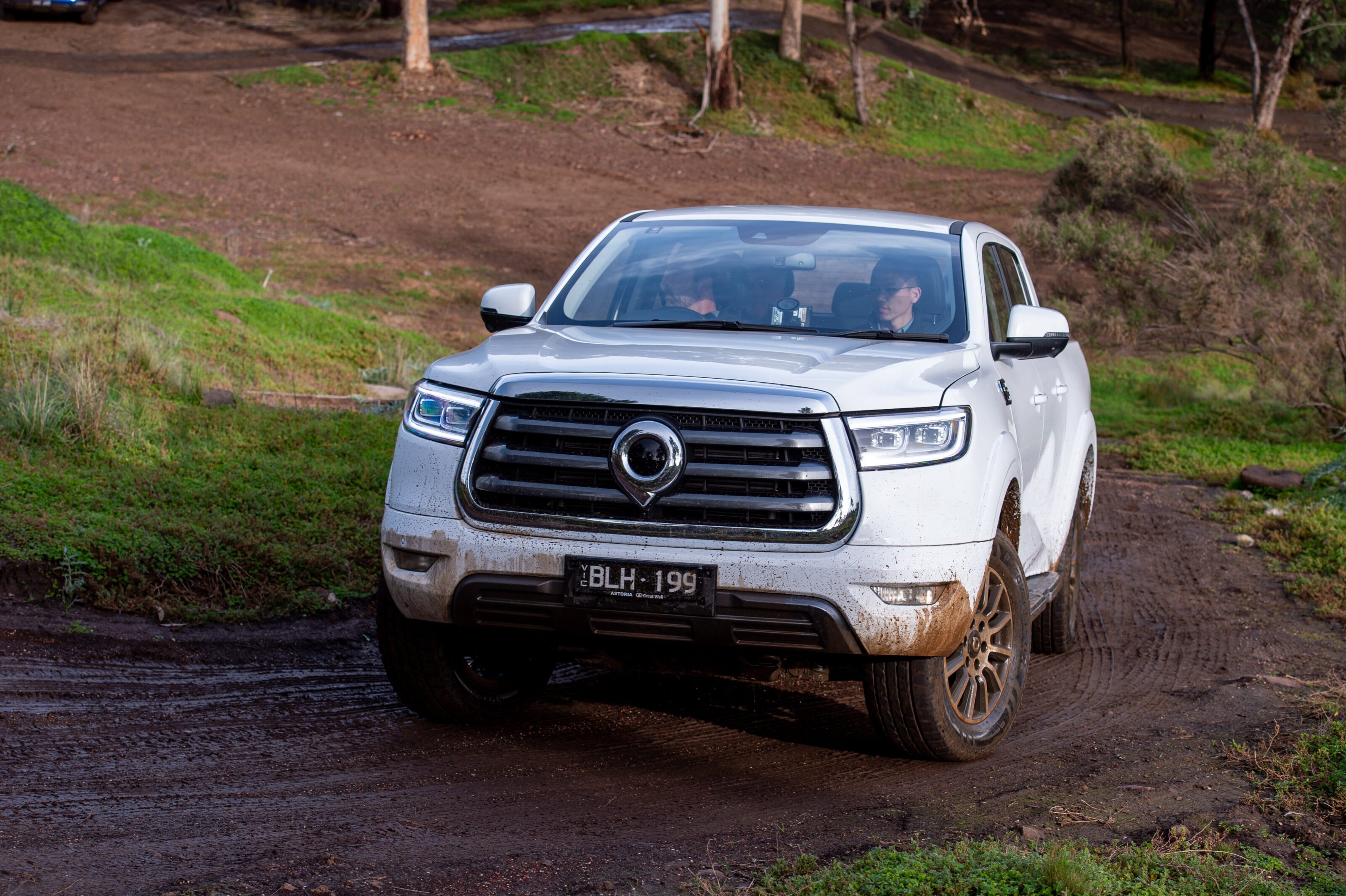
Winner: GWM
Great Wall and Haval were listed as separate brands in 2020 but grouped for 2021. Regardless, sales grew a stunning 251 per cent year on year – or by 13,149 vehicles.
More than half those are accounted for by the GMW Ute, but the Haval Jolion compact SUV (4069 units) and Haval H6 mid-sized SUV (3635 units) were also key contributors.
Special mention to Genesis, Hyundai’s spin-off luxury brand, which also achieved more than 200 per cent growth – just from a much lower base than GWM.
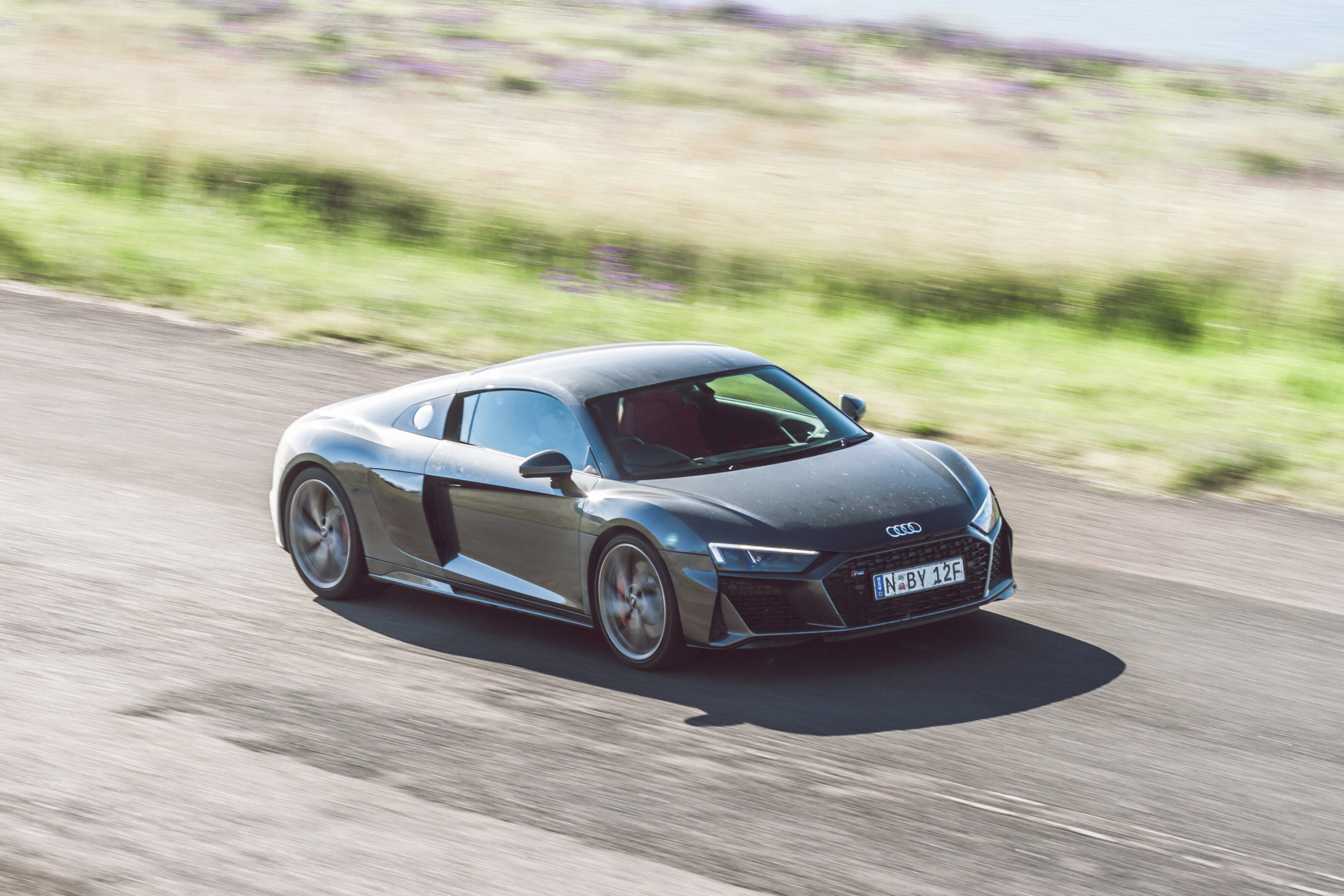
Loser: Audi
Audi didn’t lose sales in 2021 but it barely gained any, either – adding just 135 cars to its 2020 tally for a 16,003 total – well behind BMW (24,891, up six per cent) and Mercedes (33,034, down nine per cent).
The German brand was hurt significantly by the phasing out of the older-generation A3 small car, with sales plummeting by 92 per cent to just 220 units. The all-new A3 arrives in early 2022.
Most models otherwise posted growth, including key vehicles such as the Q3 (up 40 per cent) and Q5 (up 21 per cent).

Winner: Isuzu
A remarkable ongoing story: Isuzu Ute offers just two models yet continues to be one of Australia’s most popular brands.
The company was aided by the introduction of new-generation versions of both its D-Max ute and the related MU-X large SUV – which grew 67 and 51 per cent, respectively, for combined sales of 35,735.
Isuzu wasn’t far off finishing in the Top 10 Brands list for 2021, with Subaru not far ahead in 10th on 37,015 units.
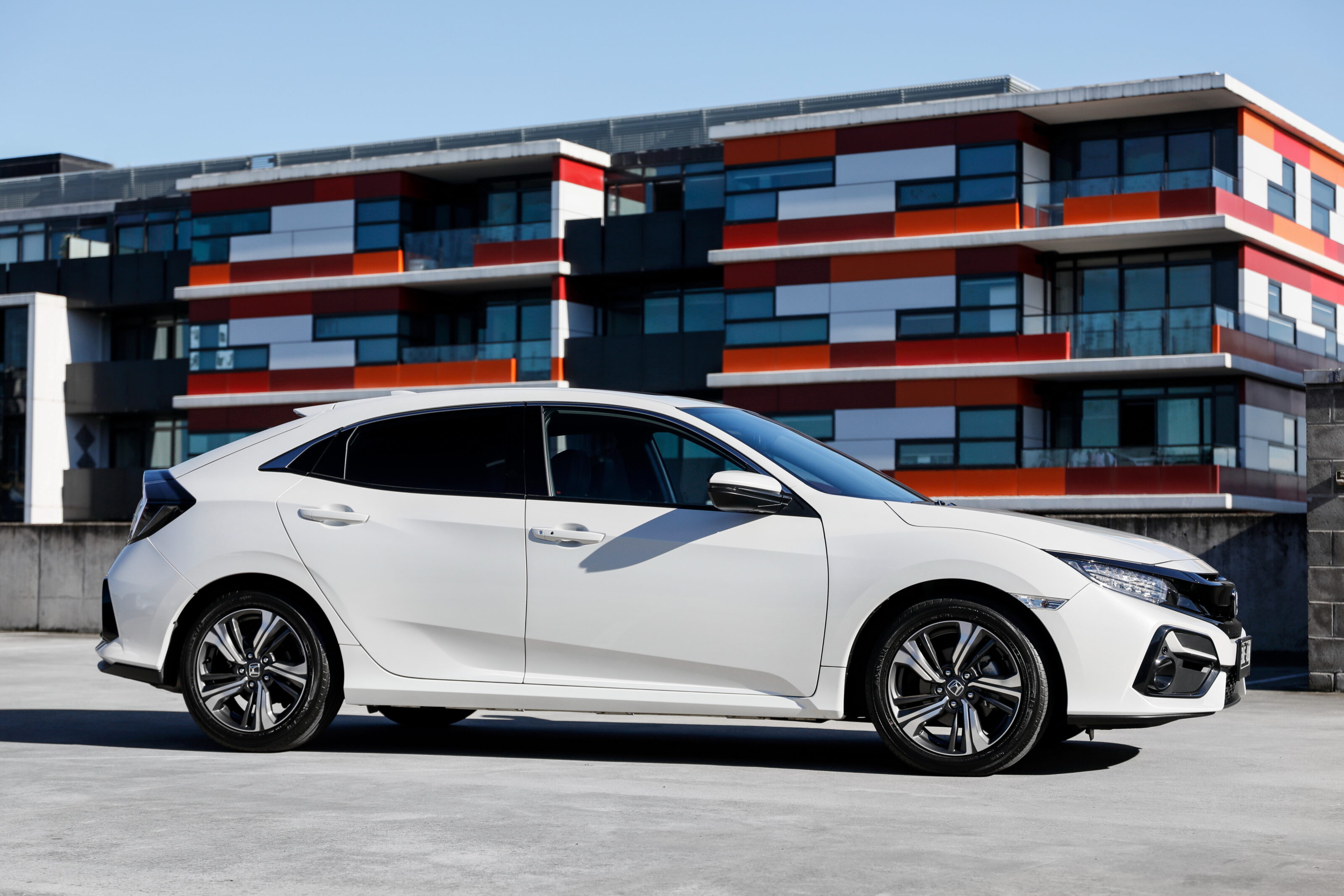
Loser: Honda
The Japanese brand switched to a fixed-pricing agency model just after mid-year and so far, not so good.
Honda has had a year to forget, with sales down a huge 40 per cent in a year when most car makers recovered ground after the struggles of 2020.
The clever Jazz city car has been culled, along with its sedan relative the City, a new Accord is doing little, and the future of the Odyssey people-mover – once a segment benchmark – is uncertain.
A new-generation Civic has been introduced but in just one trim grade and an expensive one at that. With the HR-V and CR-V SUVs both in decline that adds up to a tough year.
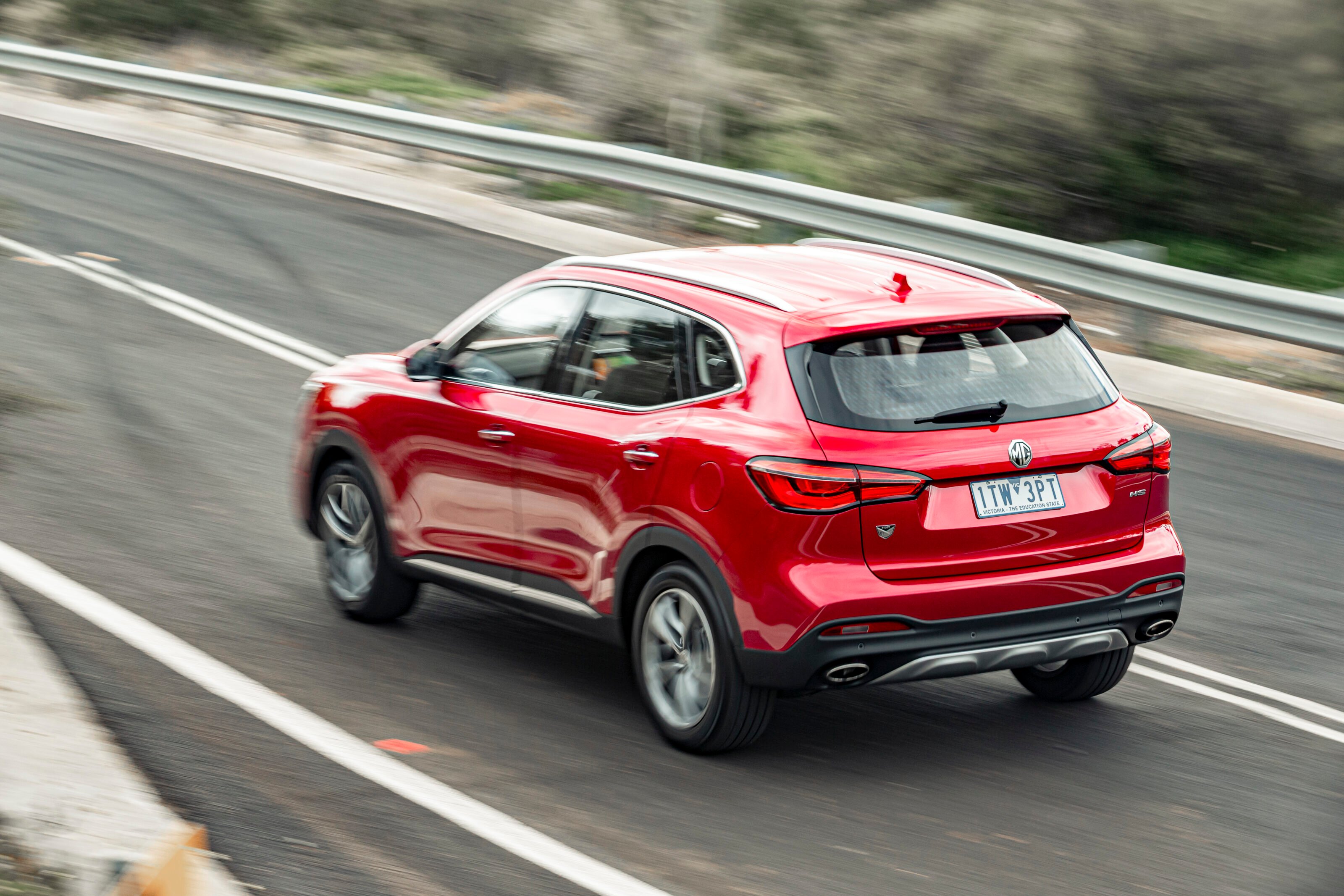
Winner: MG
Chinese brand MG had a strong 2020 with 83 per cent growth, yet it took its sales to another level in 2021 with a 156 per cent increase – the equivalent of 23,772 vehicles.
MG, which offers just three models, first made a shock appearance in the Top 10 Makes list in February, and May would be the only month it was budged from there.
Its ZS compact SUV was the lead performer, helped by the late-2020 introduction of a turbocharged ZST variant.
The MG3 city car also dominated its class, putting the Toyota Yaris in the shade with 13,774 sales. There was also a 163 per cent increase for the midsized HS SUV.
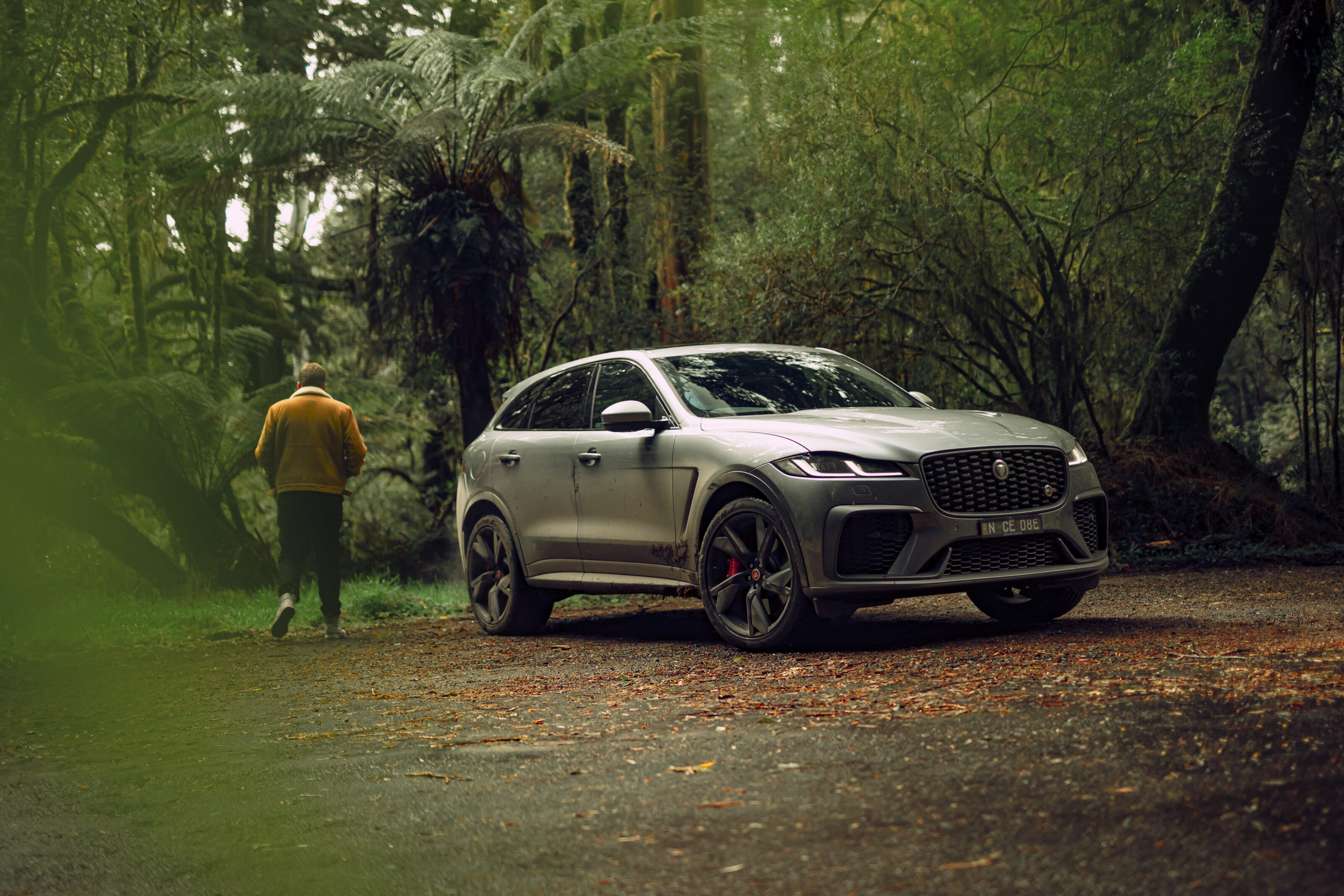
Loser: Jaguar-Land Rover
The British sister brands are entwined in disappointment after each enduring a tricky 2021.
Jaguar sold just 22 cars in December, with overall sales of 1222 down eight per cent on 2020.
The 4WD side of the business at Land Rover fared only slightly better, with a two per cent increase – all thanks to the new-generation Defender, the only model to go up in sales.

Winner: Peugeot
It’s a tale of two French brands within the PSA stable. While Citroen continues its fight for relevance in the Australian market – registering just 175 sales last year – its stablemate Peugeot lifted sales by 32 per cent.
The excellent 3008 midsized SUV led the way, while the new 2008 compact SUV has added healthy numbers.
With 2805 units for 2021, Peugeot has plenty of work to do if it wants to catch compatriot Renault, which sold 7099 vehicles for a three per cent increase.
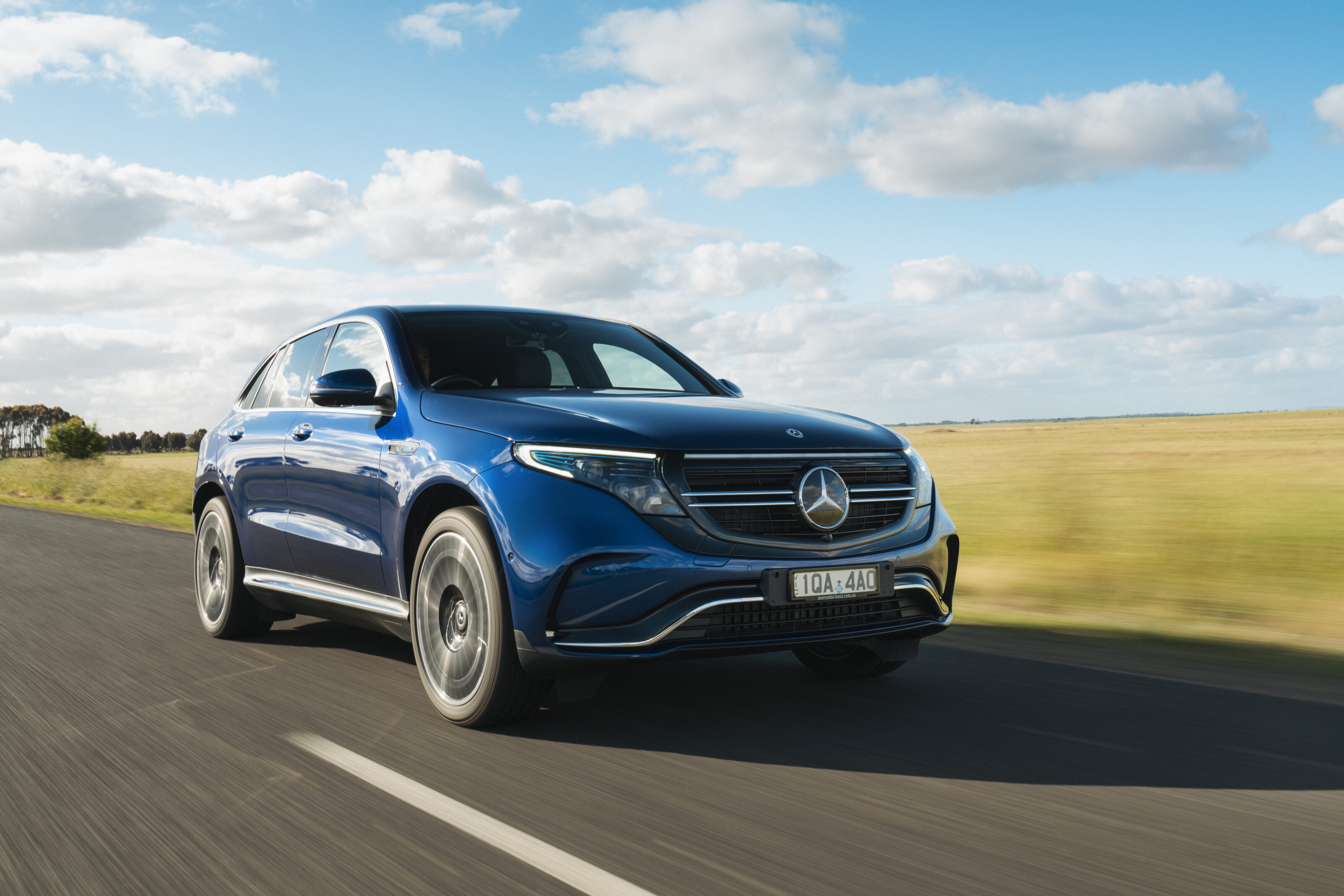
Loser: Mercedes-Benz
German car maker Mercedes saw its Australian sales drop by nearly 10 per cent in 2021, though the axing of the X-Class ute is the main contributor to the decline.
Passenger car and SUV sales were still down four per cent – mainly a consequence of notable declines for volume cars such as the A-Class (down 37 per cent) and C-Class (down 16 per cent).
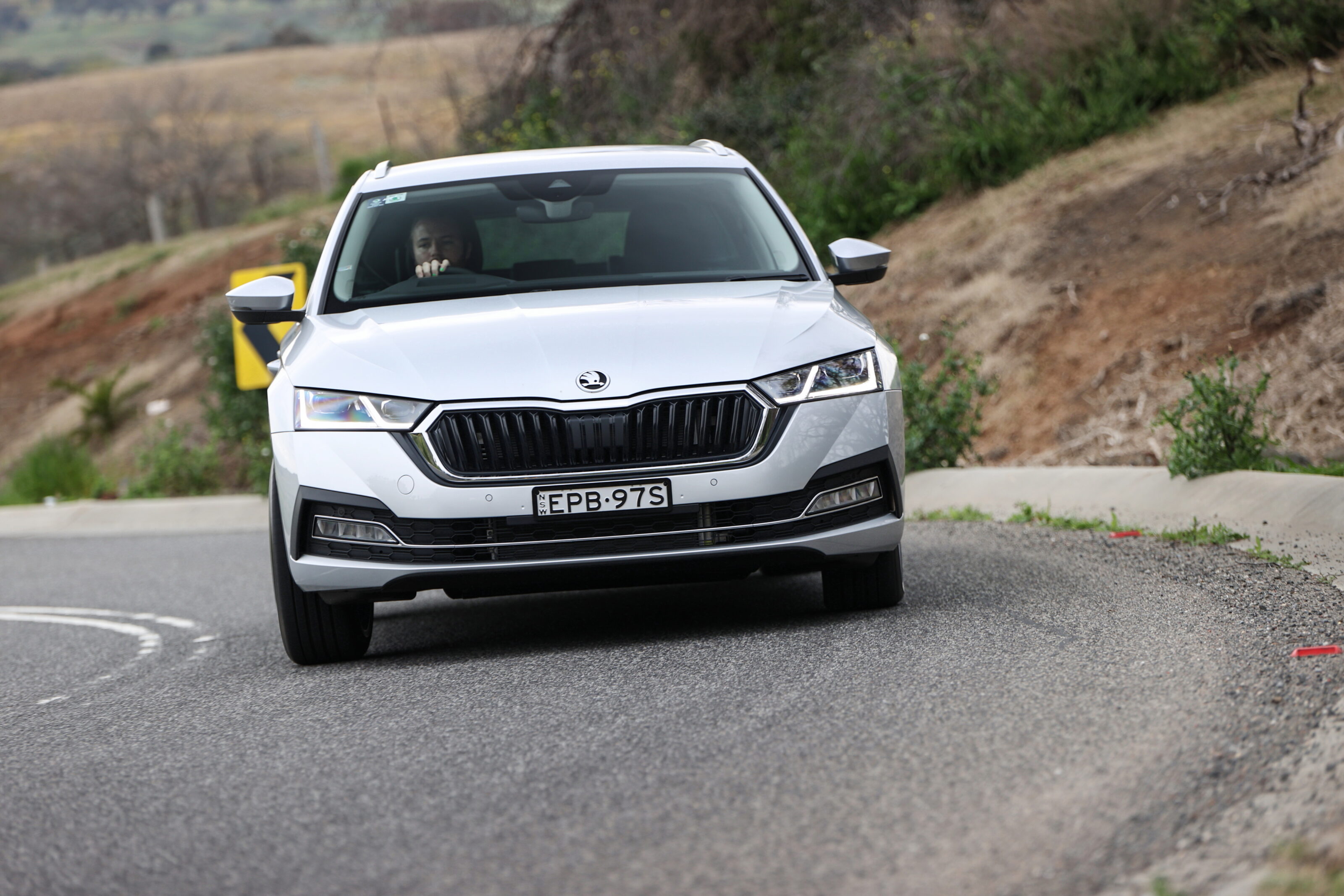
Winner: Skoda
VW’s Czech brand enjoyed a successful 2021, with sales jumping 39 per cent to 9185 units.
One of its newest vehicles, the Kamiq, established itself as the most popular Skoda in Australia, while sales of the larger Karoq grew 37 per cent and the Superb large car went up by 120 per cent.
The only disappointment was the Octavia, down 39 per cent. The introduction of a new-generation version later in 2021 seemed to disrupt sales of what has been traditionally the best-selling Skoda locally.
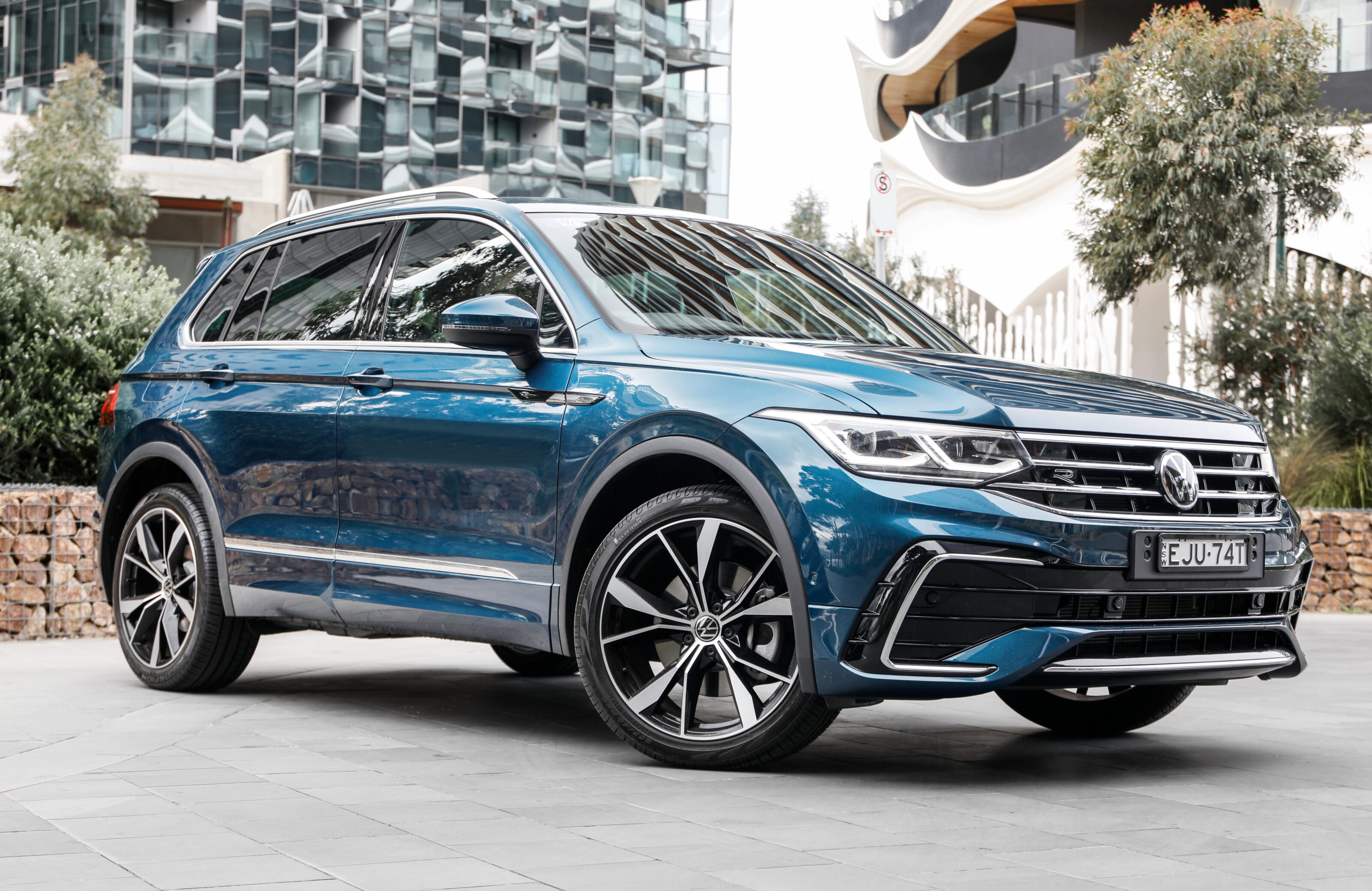
Loser: Volkswagen
On face value, not such a good year for Skoda’s parent brand – with minimal growth of just four per cent.
Two models are chiefly responsible for holding VW back last year – the Golf and Tiguan.
Although a new, eighth-generation model was released in 2021, supplies of the famous hatchback have been hit dramatically by the microchip shortage.
Where VW sold more than 10,000 Golfs in 2020, about a fifth of that number – 1926 units – left showrooms last year.
Tiguan sales, similarly suffering owing to the popularity of higher-grade models most affected by supply issues, dropped by a third.
The company can otherwise point to multiple success stories: Amarok ute (up 22 per cent despite its age); Multivan (up 233 per cent); Passat (up 67 per cent); Polo city car (up 42 per cent); Transporter van (up 197 per cent); T-Roc compact SUV (up 284 per cent).
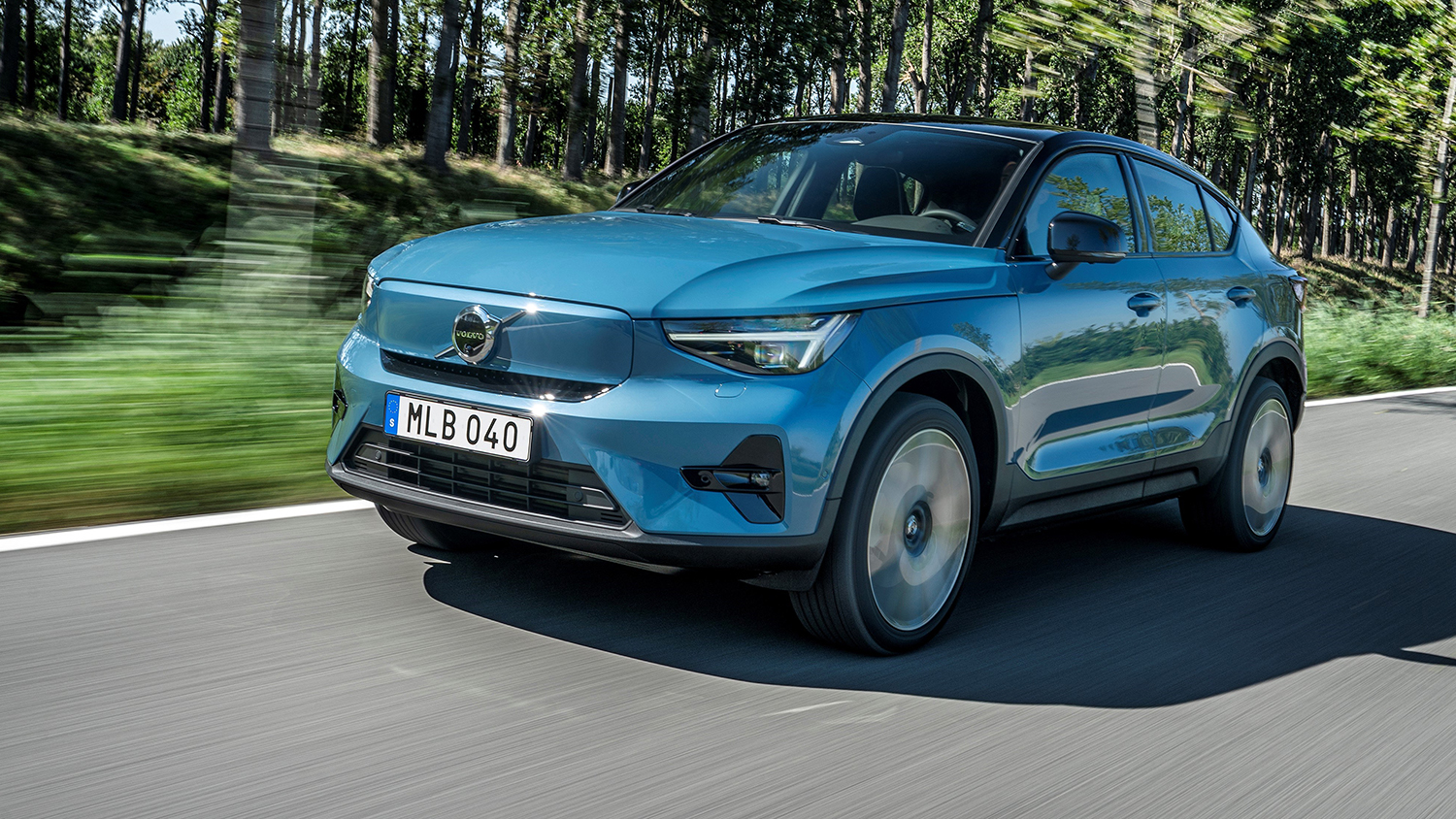
Winner: Volvo
For much of last year, the Swedish brand was well on track to hit its declared target of 10,000 sales in Australia.
The microchip-shortage supply issues bit it harder in the latter stages to leave it short, yet Volvo still set a local sales record as early as October – leaving it with a new benchmark of 9,028 registrations by the end of the year.

Loser: Ferrari
The prancing horse sold more supercars than any other brand in 2021 (194 units) but it was also the only high-end brand to post negative growth – down five per cent.
Aston Martin sales rose 52 per cent, McLaren jumped 40 per cent, and Lamborghini increased showroom output by 18 per cent.
We recommend
-
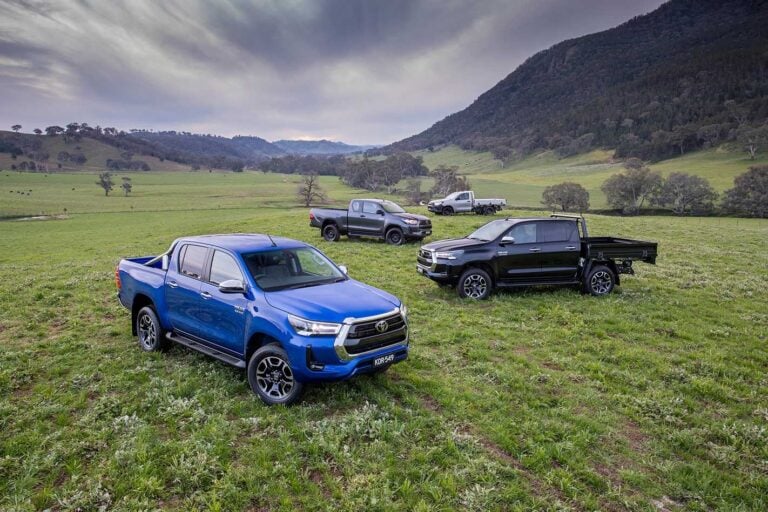 News
NewsVFACTS December 2021: Toyota HiLux number one again as new-car sales pass one million
Worst December sales since 2008 – but enough to push new-car market past the one-million mark as Toyota wins the ute battle with Ford
-
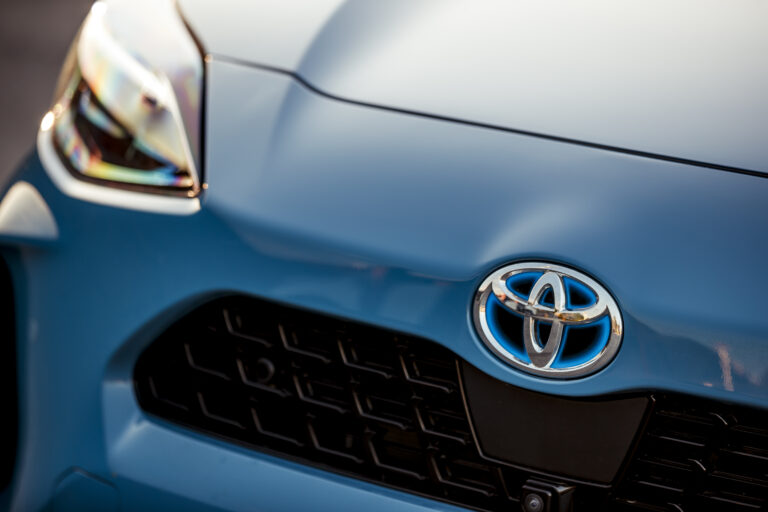 News
NewsToyota takes its 19th straight vehicle sales result in 2021
Toyota posts a strong 2021 sales result, nearing 250,000 total sales and 19 years of dominance
-
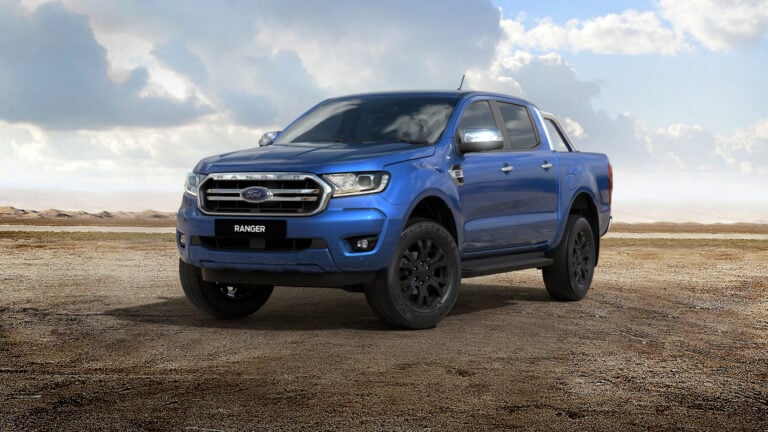 News
NewsVFACTS November 2021: Month's new-car sales weakest result since global financial crisis
Australian new-car market posts worst November figure since 2008, but set to pass one-million registrations for 2021




